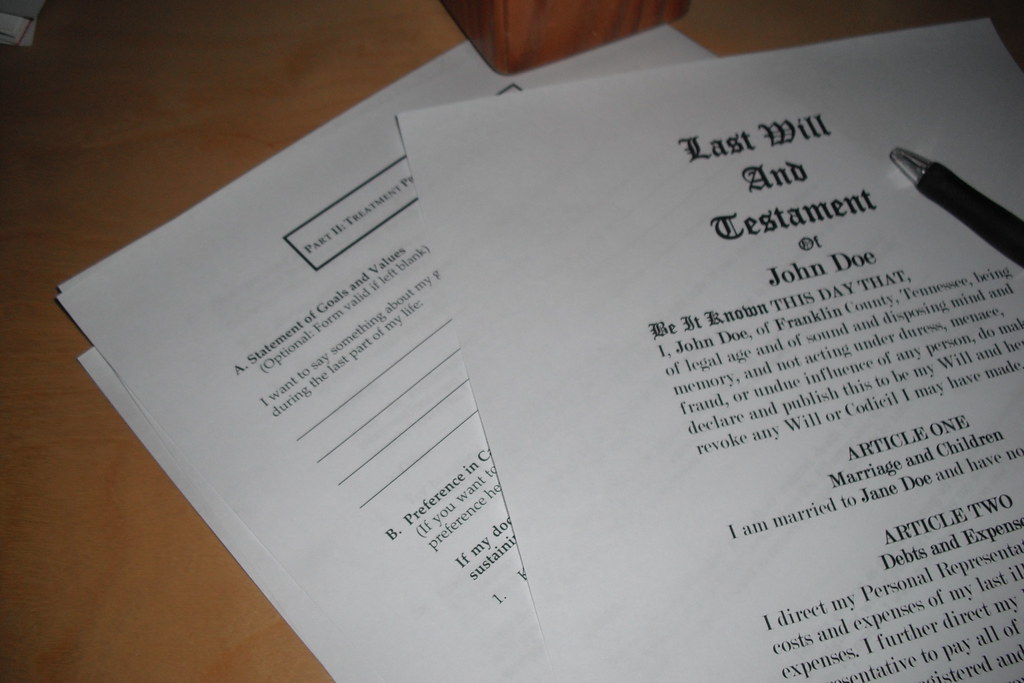Tuesday, December 11, 2018
WILLS - UNDUE INFLUENCE A QUESTION OF FACT
Estate of Robinson, NYLJ 12/10/18, Date filed: 2018-11-07, Court: Surrogate's Court, Bronx Judge: Surrogate Nelida Malave-Gonzalez, Case Number: 2012-639:
"...….
The objectant asserts inter alia; lack of due execution, capacity, fraud and undue influence. The objectant alleges that he and his father had a close and loving relationship, however, after the decedent’s wife passed away, the relationship changed due to the fact that her daughter, Audrey Allen, who lived with the decedent, began to control the decedent’s activities. He alleges that the decedent’s stepdaughter, Audrey monitored all of the decedent’s phone calls and attempted to keep him from his father, who was unable to freely communicate with him. The objectant alleges that despite these efforts, he maintained a relationship with the decedent, visiting him twice monthly, however, there was often hostility in the home. He alleges that the decedent’s living conditions deteriorated in 2000, after which the stepdaughter discouraged him from visiting his father, and when he would call or appear at the home, she told him that the decedent was not available and would not be permitted to see him. When the objectant was permitted to see the decedent, he looked unhappy and was unwilling to speak when Audrey was present, but would speak freely when she left the room. In 2003, the objectant alleges that when at the decedent’s home, his father cried and complained to him regarding his living situation and Audrey then told the objectant to leave the home and not to return. He believes that Audrey exerted mental coercion over the decedent to carry out her wishes because he was too weak to resist and was afraid to anger her. He alleges that Audrey kept the decedent isolated from his family, frustrated communication with them and put him in a nursing home without consulting them. The decedent was dependent and under the control of his step-children and he was unduly influenced to disinherit his family in favor of them.
…….
The successor guardian ad litem submitted a report indicating he was unable to locate his ward and believes that the objectant presented compelling arguments and significant questions of fact. He argues that taken in the light most favorable to the objectant, the decedent may well have been under duress when he executed the will and may have been unduly influenced by the people that lived in his house and “controlled” his life and argues there is a sufficient basis to deny probate of the will.
…….
The burden of proof lies on the objectant to demonstrate, by a preponderance of the evidence, that the testamentary instrument was procured by the exercise of undue influence or fraud (see Matter of Conti, 5 Misc.3d 1026A [Sur Ct, New York County 2004]); Matter of Coniglio, 242 AD2d 901 [4th Dept 1997]). For a will to be invalidated based upon undue influence it must be shown that the influence exercised amounted to a moral coercion, which restrained independent action and destroyed free agency, or which, by importunity which could not be resisted, constrained the testator to do that which was against his free will and desire, but which he was unable to refuse or too weak to resist (Matter of Walther, 6 NY2d 49 [1959]). Undue influence may be proved by circumstantial evidence, but this evidence…must be of a substantial nature. Evidence must be adduced from which inferences of undue influence can be reasonably drawn before a will should be denied probate (id.). Undue influence is frequently established by circumstantial evidence including: the facts and circumstances surrounding the testator and the execution of the will; the condition of the testator’s mind; the testator’s dependency on and subjection to the control of the person accused of exerting the undue influence; the acts and declarations of that person showing the opportunity and disposition of that person to wield the undue influence; and the provisions of the will compared to prior wills as well as whether the will favors the person charged with the influence at the expense of others who, based on the testator’s relationship with them, would be considered more natural objects of the testator’s bounty (see Matter of Elkan, 22 Misc 3d 1125 [A] [Sur Ct, Bronx County 2009]).
To establish fraud, the objectant must show that the petitioner or another person made a false statement which altered the testamentary disposition that would have been made in the absence of such a statement (Matter of Paigo, 53 AD3d 836 [3d Dept. 2008]). Without a showing that undue influence or fraud was actually exercised upon the decedent, evidence that opportunity and motive existed to exert such influence will not suffice to raise a triable issue as to whether the will reflected the intent of the testator (Matter of Zirinsky, 43 AD3d 946 [2d Dept 2007]).
…….
...the court finds questions of fact as to whether the proponent may have exercised undue influenced over the decedent. The objectant indicates that: (1) the proponent moved in with the decedent after the decedent’s spouse died and thereafter decedent’s physical and mental living conditions deteriorated; (2) when he visited the decedent, the decedent was emotional and unhappy, and would not speak when the proponent’s mother, Audrey, was in the room; and (3) Audrey isolated the decedent from his family and (4) Audrey moved the decedent to a nursing home without consulting the decedent’s family (see Matter of Johnson, 6AD3d 859 [3d Dept 2004]). ....The court finds issues of fact warranting a trial with respect to undue influence. Proceed accordingly."
Labels:
Probate,
Undue Influence,
Wills
Subscribe to:
Post Comments (Atom)








No comments:
Post a Comment
Note: Only a member of this blog may post a comment.